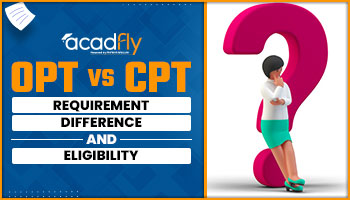

For international students, financing education abroad can be challenging, especially when it comes to securing loans. While many lenders require a cosigner, there are options available for student loans without a cosigner. These loans are designed to help students who may not have access to a U.S. cosigner or equivalent financial support in the country they are studying. By exploring specific lenders and programs that cater to international students, it's possible to secure funding without relying on a cosigner, making education more accessible to students from diverse backgrounds.
Lenders Offering Student Loans Without a Cosigner
list of some lenders offering student loans without a cosigner for international students:
1. MPower Financing
MPower provides no cosigner student loans for international students studying in the U.S. and Canada. They focus on academic potential and future career prospects instead of credit history.
Key Features:
-
Available to students in the last two years of their program.
-
Fixed interest rates.
-
Flexible repayment plans.
2. Prodigy Finance
Prodigy Finance offers loans to international students at select universities worldwide without needing a cosigner or collateral. The eligibility is based on future earning potential.
Key Features:
-
Loans are tailored for international postgraduate students.
-
Interest rates depend on career potential.
-
No co-signer is required.
3. Stilt
Stilt provides loans to international students and immigrants, including those without a credit history or a cosigner. They focus on the financial behavior of the applicant rather than traditional credit scores.
Key Features:
-
Fast approval process.
-
Loans are available for various educational expenses.
-
No cosigner or credit score is required.
4. Future Finance
Future Finance is a UK-based lender offering international student loan options without a cosigner. Their loans cover tuition fees, living expenses, and other academic costs.
Key Features:
-
Loans for students in the UK.
-
Competitive interest rates.
-
Flexible repayment options post-graduation.
5. Earnest (for U.S. Students)
Earnest provides loans without requiring a cosigner, though this option is often limited to U.S. citizens or permanent residents. They focus on individual financial habits rather than just credit history.
Key Features:
-
Low, variable interest rates.
-
No late fees.
-
Customizable repayment plans.
By exploring these international student loan options, you can find the right fit for your educational needs without needing a cosigner. Always review loan terms and conditions carefully to ensure they align with your financial plans.
Eligibility Criteria for Student Loans Without a Cosigner
Securing student loans without a cosigner is an option for international students, though the eligibility requirements differ from traditional loans. Lenders that offer these loans focus on factors such as academic performance, field of study, and potential for post-graduation employment, rather than relying on a cosigner’s creditworthiness. Understanding these criteria is crucial for students seeking financial assistance to support their education abroad.
Academic Performance and School Accreditation
One of the key factors in loan eligibility for students applying for non-cosigner loans is their academic standing. Lenders offering international student loan options often prioritize students enrolled in accredited universities or those pursuing advanced degrees.
Schools with a strong reputation, especially in fields like STEM, business, or law, increase the likelihood of loan approval. Good academic performance can demonstrate the student's commitment to their education, which assures lenders of their ability to repay.
Field of Study and Future Earnings Potential
Lenders offering no cosigner student loans often consider the student’s field of study and its associated earning potential. Students in high-demand fields like engineering, computer science, medicine, or finance are viewed more favorably because their post-graduation employment prospects are stronger.
This factor is used to assess the likelihood that the borrower will have the financial means to repay the loan, even without a cosigner. When applying for student loans without a cosigner, demonstrating that your field of study is in a lucrative and growing industry can improve your chances of approval.
Nationality and Residency Status
Many lenders providing student loans without a cosigner tailor their offerings to specific nationalities or students from certain countries. Some lenders work with international students attending universities in particular regions, such as the U.S., the UK, or Canada.
Additionally, residency status can play a role; for instance, some lenders only offer loans to students with temporary visas or student permits in the country where they are studying. Understanding these restrictions is important when applying for student loans.
Financial Need and Additional Financial Aid
While cosigner-free loans focus less on credit history, demonstrating financial need can be a factor in eligibility. Lenders may look at the student's overall financial situation to ensure they have the means to cover their living expenses alongside tuition costs.
It's important to supplement loans with other forms of aid, such as scholarships or grants. Utilizing student financial aid tips, such as applying for all available funding sources, can help reduce reliance on loans and improve your financial standing when applying.
Loan Repayment Ability
Lenders assess the potential borrower’s future ability to repay based on projected income after graduation. Those applying for international student loan options without a cosigner should be prepared to show a repayment plan, often backed by data on typical salaries in their chosen field of study. This approach helps assure lenders that even without a cosigner, the student will be able to manage their loan obligations once they start working.
By understanding these loan eligibility criteria and preparing a strong application, international students can improve their chances of securing a loan without a cosigner, allowing them to focus on their studies without financial stress.
Government and Institutional Loan Programs for International Students
For international students seeking financial support, government and institutional loan programs can be a crucial resource. While these loans may be more limited than private options, they often provide more favorable terms, including lower interest rates and flexible repayment plans. These programs are designed to help students who may not qualify for traditional student loans without a cosigner, offering tailored support based on their academic needs and financial circumstances.
Government Loan Programs
In some countries, the government provides financial aid or loan programs specifically for international students. These loans often come with lower interest rates and extended repayment periods, making them a more affordable alternative to private loans.
However, not all countries offer government-backed loans to international students, and eligibility requirements can vary. For instance, some programs may be available only to students from specific countries or enrolled in particular fields of study. Exploring international student loan options backed by the government can help reduce the financial burden of studying abroad.
Institutional Loan Programs
Many universities and colleges offer institutional loan programs to support international students. These loans are provided directly by the school and may not require a cosigner, making them an attractive option for students unable to secure private loans. Eligibility for institutional loans often depends on the student's academic performance, financial need, and field of study.
These loans may also come with flexible repayment terms and lower interest rates compared to private lenders. When applying for student loans, it’s essential to check whether your institution provides any loan or financial aid options tailored to international students.
No Cosigner Student Loans Through Institutions
Some institutions have programs that provide no cosigner student loans to international students based on their academic merit or future earning potential. These programs are often limited but can be a vital resource for students who do not have access to a U.S. cosigner or credit history. Universities that offer such loans may also provide financial counseling and repayment assistance to help students manage their loan obligations post-graduation.
Collaborative Loan Programs with Private Lenders
Certain government bodies and educational institutions partner with private lenders to offer student financial aid tips and joint loan programs. These collaborations can offer more competitive loan terms than private loans alone, benefiting students who need financial assistance but may not meet standard loan eligibility criteria. These partnerships aim to expand access to loan eligibility for students, particularly those from underrepresented backgrounds or high-demand academic fields.
Applying for Government and Institutional Loans
When applying for student loans through government or institutional programs, it’s important to gather all required documentation, including proof of enrollment, financial need, and academic standing. These loans often have specific deadlines, and early applications can improve your chances of receiving aid. Moreover, researching eligibility for these programs well in advance can help you secure the necessary funding for your studies.
Steps to Apply for a Loan Without a Cosigner
Applying for student loans without a cosigner requires careful planning and understanding of the specific requirements. For international students who may not have access to a cosigner, there are several steps you can follow to secure a loan. Here’s a guide to help you navigate the process and successfully apply for a loan on your own.
1. Research Available Lenders
Start by researching lenders that offer international student loan options without requiring a cosigner. Not all lenders provide loans to students without a cosigner, so it’s essential to identify those that cater specifically to international students. Look for reviews, interest rates, repayment terms, and eligibility requirements for loans from various financial institutions. This step will help you find the best option for your financial situation and study plans.
2. Check Eligibility Requirements
Each lender has different eligibility criteria for offering no-cosigner student loans. While a traditional loan may rely heavily on credit history or a cosigner’s financial standing, loans without cosigners often focus on your academic performance, field of study, and potential future earnings. Before applying for student loans, ensure you meet the lender’s requirements, which may include being enrolled in an eligible program or university, maintaining good academic standing, or pursuing a high-demand field of study.
3. Gather Required Documentation
When you’ve identified a lender, gather all necessary documents to support your loan application. For loan eligibility for students, you’ll typically need to provide proof of enrollment at an accredited institution, academic transcripts, proof of identity, visa status, and sometimes proof of financial need. Having these documents prepared in advance can help streamline the application process and ensure that you submit a complete and accurate application.
4. Submit Your Application
Once you have all the necessary documentation, you can proceed with submitting your application. Make sure to double-check the information you provide, as any mistakes could delay the approval process. Lenders offering student loans without a cosigner may have an online application portal, making it easier to apply from anywhere. Be sure to track your application status and promptly respond to any additional requests from the lender.
5. Review and Accept Loan Terms
If your application is approved, carefully review the loan terms before accepting the offer. Look at the interest rate, repayment schedule, and any fees associated with the loan. Make sure the terms align with your financial plans and that the repayment terms are manageable once you graduate. If everything looks good, formally accept the loan, and be mindful of any deadlines for acceptance.
6. Plan for Repayment
Even though repayment may not begin until after graduation, it’s important to start planning early. Understanding your student financial aid tips and creating a budget can help you manage your loan repayments effectively. Some lenders may offer flexible repayment options, so it’s worth exploring different scenarios to ensure that you can comfortably meet your obligations when the time comes.
By following these steps, international students can secure student loans without a cosigner and focus on their academic journey without worrying about financial constraints.
Frequently Asked Questions
1. Can international students apply for student loans without a cosigner?
2. What are the eligibility criteria for no-cosigner student loans?
3. What documentation is required to apply for a student loan without a cosigner?
4. Are government loans available for international students without a cosigner?
5. How do repayment terms differ for student loans without a cosigner?









